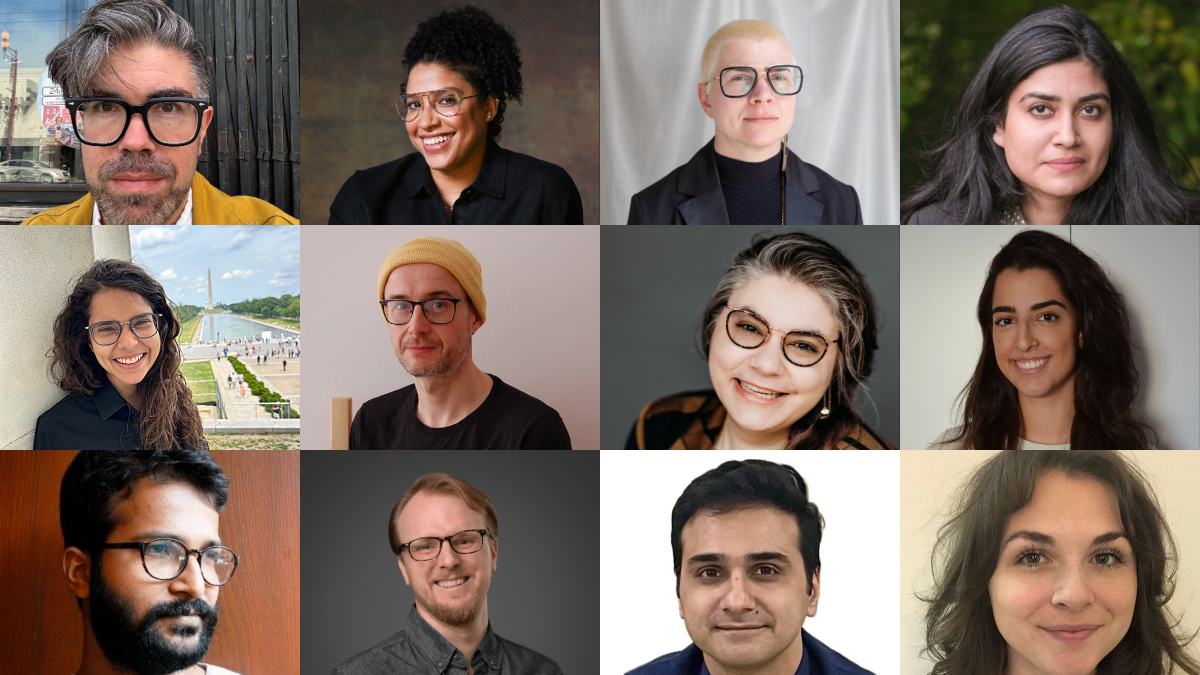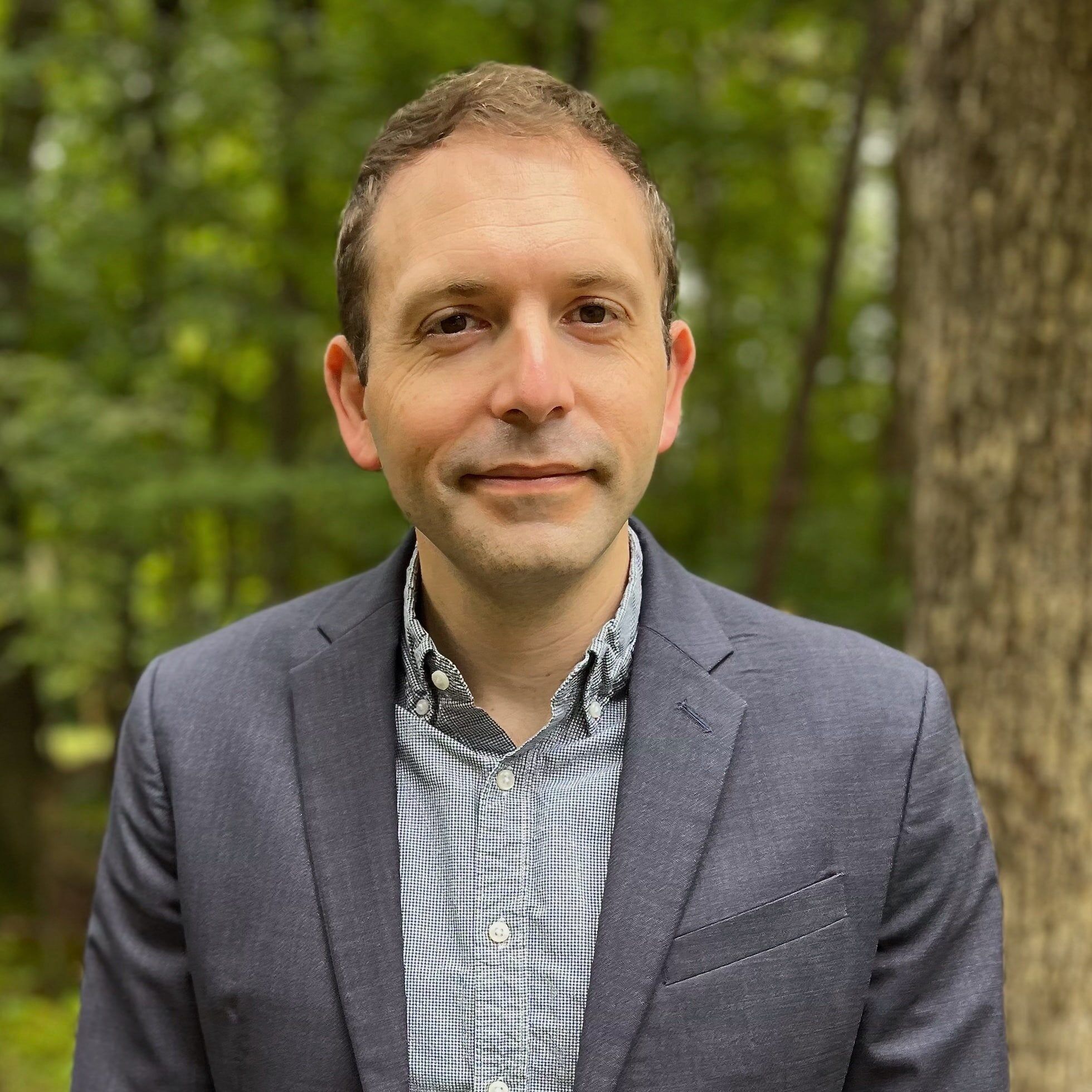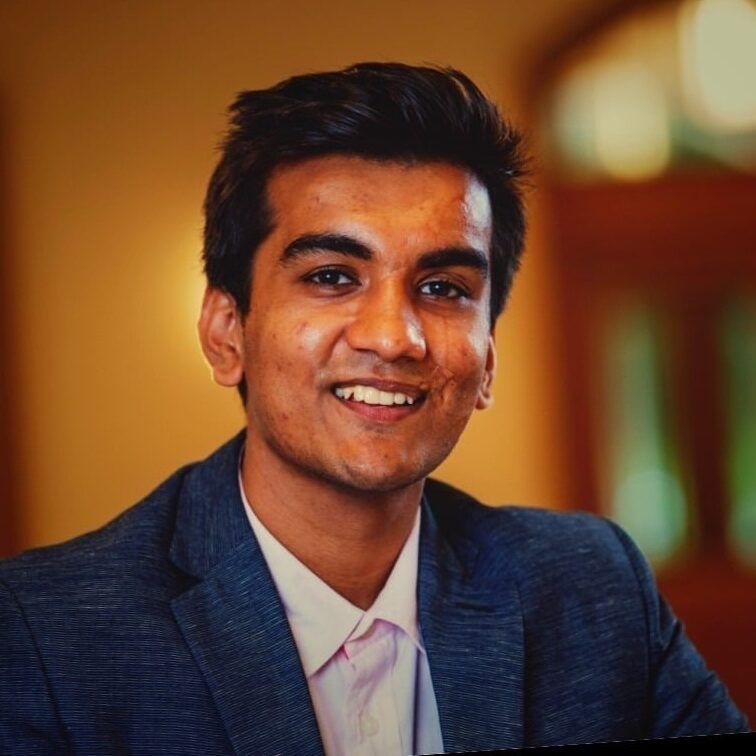Tech Policy Press Names New Editors and 2025 Reporting Fellows
Justin Hendrix, Ben Lennett, Prithvi Iyer / Jan 17, 2025
First row, l-r: Eryk Salvaggio, Anika Collier Navaroli, Dia Kayyali, Ramsha Jahangir. Second row, l-r: Ariana Aboulafia, William Burns, Jasmine Mithani, Laís Martins. Third row, l-r: Amber Sinha, Dean Jackson, Prateek Waghre, Megan Kirkwood.
As part of our efforts to support new and diverse perspectives on tech policy issues and expand our coverage, today Tech Policy Press is excited to announce three new editors joining the masthead and a new cohort of nine reporting fellows. Together, these individuals–from a range of geographies, disciplines, and expertise–will help us grow our community of contributors, better cover tech policy issues, and further develop the products we provide to readers.
Ramsha Jahangir named Associate Editor
Ramsha Jahangir joins Tech Policy Press as Associate Editor, a full-time position on the masthead. Previously, Ramsha led Policy and Communications at the Global Network Initiative (GNI), which she now occasionally represents as a Senior Fellow on various issues related to human rights and tech policy. As an award-winning journalist and a 2024 Tech Policy Press reporting fellow, Ramsha has extensively reported on platform governance, surveillance, and digital authoritarianism. Ramsha holds a Master’s in Journalism, Media, and Globalization from the University of Amsterdam and received the Erasmus Mundus Journalism scholarship. Ramsha divides her time between Amsterdam and Karachi.
Dean Jackson and Amber Sinha named Contributing Editors
Two other 2024 Tech Policy Press Fellows, Dean Jackson and Amber Sinha, join the masthead as part-time Contributing Editors.
Dean Jackson is the principal behind Public Circle Research. He is also a non-resident fellow at the Digital Forensic Research Lab and American University's Center for Security, Innovation, and New Technology. Previously, Dean was an investigative analyst with the Select Committee to Investigate the January 6th Attack on the US Capitol. He has ten years of think tank experience and holds an MA in international relations from the University of Chicago and a BA in political science from Wright State University in Dayton, Ohio. He is based outside Cleveland, Ohio.
Amber Sinha works at the intersection of law, technology, and society and studies the impact of digital technologies on socio-political processes and structures. His research aims to further the discourse on regulatory practices around the internet, technology, and society. Until 2022, Amber was the Executive Director of the Centre for Internet and Society, India, where he led programs on privacy, digital identity, data governance, and AI. Amber's research has been cited with appreciation by the Supreme Court of India and several government committees. He serves on the GPA Reference Panel for the Global Privacy Assembly and is an expert member of ONE AI at the OECD. His first book, The Networked Public, was released in 2019. He is based in Delhi.
2025 Reporting Fellows named
After reviewing close to 700 applications, Tech Policy Press is proud to introduce its second fellowship cohort. These individuals will explore issues consistent with their expertise and curiosities, including a range of issues related to artificial intelligence and the future of technology policy.
Anika Collier Navaroli
Anika Collier Navaroli is an award-winning writer, lawyer, and researcher focused on journalism, social media, artificial intelligence, trust and safety, and technology policy. She is currently a Senior Fellow at the Tow Center for Digital Journalism at Columbia University and the McGurn Senior Fellow for Media Integrity at the Consortium on Trust in Media and Technology at the University of Florida. Over the past decade, her work has spanned from law firms and think tanks to advocacy organizations and senior policy positions at Twitter and Twitch.
Ariana Aboulafia
Ariana Aboulafia leads the Disability Rights in Technology Policy project at the Center for Democracy & Technology. Her work currently focuses on maximizing the benefits and minimizing the harms of technologies for people with disabilities, including through focusing on algorithmic bias and privacy in employment, healthcare, and use of assistive technology. Ariana is an attorney with particular expertise in disability, technology, criminal law, and the First Amendment. She was first introduced to technology while serving as a fellow at the Cyber Civil Rights Initiative, and she later worked as an assistant public defender in Miami-Dade County, and an officer in the Journalism program at the John S. and James L. Knight Foundation. Her writing has been featured in several publications, including the University of Florida Journal of Law and Public Policy and the Connecticut Public Interest Law Journal, as well as Slate, Tech Policy Press, and Teen Vogue.
Dia Kayyali
Dia Kayyali (they/them) is a member of the Core Committee of the Christchurch Call Advisory Network, a technology and human rights consultant, and a community organizer. As a leader in the content moderation and platform accountability space, Dia’s work has focused on the real-life impact of policy decisions made by lawmakers and technology companies, with a particular focus on impacts in global majority countries. They have cultivated global solidarity to push back and improve the impact of policies on vulnerable communities, from LGBTQIA+ people to religious minorities. They have also advocated for human rights extensively directly with policymakers in the United States, European Union, and globally. They previously served as a Senior Case and Policy Officer at the Oversight Board, a Policy Director at Mnemonic, a Tech + Advocacy Program Manager at WITNESS, and as an activist at the Electronic Frontier Foundation.
Eryk Salvaggio
Eryk Salvaggio is a blend of hacker, researcher, designer, and media artist exploring the social and cultural impacts of technology, including artificial intelligence. He is a 2025 visiting professor at the Rochester Institute of Technology's Humanities, Computing, and Design program and an instructor in Responsible AI at the Elisava Barcelona School of Design and Engineering. Alongside research in AI, art, and education at the MetaLab (at) Harvard University, he serves as the Emerging Technology Research Advisor to the Siegel Family Endowment. He writes a regular newsletter at cyberneticforests.com.
Jasmine Mithani
Jasmine Mithani is a journalist focused on making complex ideas accessible to everyone. She has worked as a visual journalist, game developer, civic tech software consultant, alt-weekly editor, and user experience designer. Her experience in journalism spans outlets national to hyper-local, including FiveThirtyEight, National Public Radio, and South Side Weekly. She is currently a tech and data reporter at The 19th, an independent nonprofit newsroom examining the intersection of gender, politics, and policy. Much of her work revolves around core themes of information access, tech-facilitated harms, and privacy. Her reporting frequently centers LGBTQ+ perspectives and intersects with reproductive rights. She contributed to The 19th’s 2023 Online Journalism Award-winning coverage of the Dobbs decision, and her visualizations have been long- and short-listed for Information Is Beautiful Awards. Jasmine routinely speaks about best practices in journalism around reporting on mixed-race people, working with data on LGTBQ+ populations, and creating accessible data visualizations. She also writes the newsletter Data + Feelings about being data and being human.
Laís Martins
Laís Martins is a Brazilian investigative journalist based in São Paulo. Her work focuses on technology, human rights, and politics – and the intersection of these themes. She has published reports in both Brazilian and international media outlets, including The New York Times, The Guardian, and the Associated Press. Currently, she is a reporter at The Intercept Brasil focused on investigations about technology. She was a fellow at the Pulitzer Center, with a project about how Bolsonaro's government's gun policies impacted Brazilian women, and most recently at Rest of World, investigating the intersection between labor and technology in Brazil and Latin America. She has a bachelor's degree in Journalism and holds a master's degree in Political Communication from the University of Amsterdam and the University of Aarhus, in Denmark.
Megan Kirkwood
Megan Kirkwood is a researcher and writer specializing in issues related to competition and antitrust, with a particular focus on the dynamics of digital markets and regulatory frameworks. Her research interests span technology regulation, digital platform studies, market concentration, ecosystem dependencies, and digital privacy, with a focus on Europe and the UK. She has contributed extensively to Tech Policy Press, including a detailed exploration of the rollout and implications of Europe’s Digital Markets Act. Much of her recent work involves tracking the implementation of this legislation, including conducting an empirical study of gatekeeper compliance that she presented in Brussels. Megan holds an MA in Digital Culture and Society from King’s College London, where she examined the social, political, and economic implications of communication technologies and emerging innovations such as artificial intelligence. Following her studies, she worked as a research and advocacy assistant at The Civil Liberties Union for Europe. She is based in London.
Prateek Waghre
Prateek Waghre is a technologist-turned-public policy researcher in India. Most recently, Prateek was the Executive Director / Policy Director at the Internet Freedom Foundation (IFF), a digital rights organization in India. Prior to IFF, he was a technology policy researcher at The Takshashila Institution. Prateek spent nearly a decade in the CDN (content delivery networks) and technology industries in product management and solutions engineering roles before turning to public policy research. He is deeply interested in how technology and its deployment affect liberal democratic societies and spaces. His research interests include the state of the information ecosystem, how the states seek to impose their will on it, how parts of society seek to exploit the inherent openness of digital spaces, and the evolution of digital rights (privacy, surveillance, free expression) in liberal and authoritarian environments.
William Burns
William Burns has almost 20 years of experience in science and technology policy at the intersection of health, environment, food, and sustainable energy. His original training was a PhD in malaria biochemistry followed by an MSc in science communication. More recently, he studied the history of science, technology, and medicine as a Hans Rausing Scholar in Imperial College, London. He worked for nearly a decade in a learned society and in the UK Energy Research Centre where he was part of a small team promoting uptake of knowledge and evidence in Whitehall and Brussels, mainly concerned with decarbonization, sustainability, pollution control, and public health. He is interested in the intersection of technology and society and how we might shape it for the better, as well as how history and path dependency determine current decision-making.
Tech Policy Press is grateful to its foundation funders and the individual donors who make this work possible.
Authors


